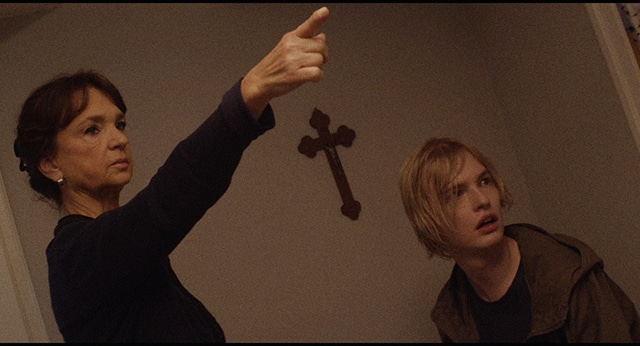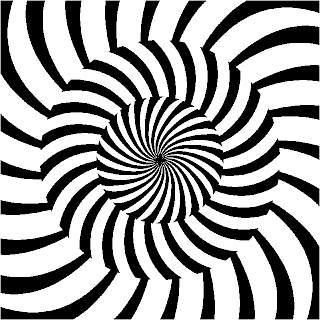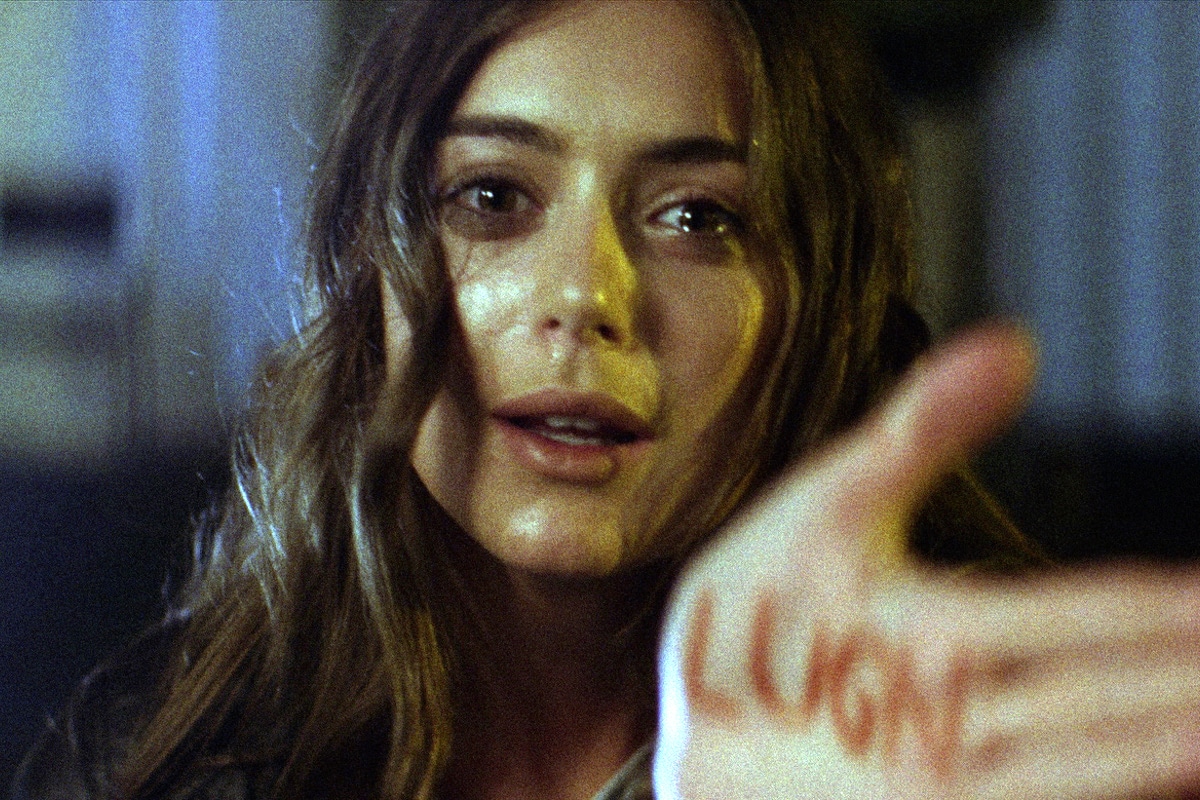
Horror films have often invoked different kinds of physical media as conduits or access points for dark forces, and given the significance of music in our culture, it’s little wonder that records have figured fairly highly over the years, particularly in decades gone past. There have been some great stories which feature records, or other kinds of music recordings; however, what you notice is that certain kinds of music typically feature, and heavy metal is usually high up on the list of culprits. Black Circle is refreshing in a number of ways, but key amongst these is how it takes that old, familiar idea of audio as a gateway to something dangerous, but flips it on its head. In this film, it’s not metal, but an old self-help recording which triggers something malevolent.
Using an array of (highly convincing) 70s TV advertisements to introduce the kind of self-help it means, the film introduces a very old idea, one ostensibly re-imagined here for Age of Aquarius thinkers. Mesmerism was one of the very earliest melds between rational, ‘scientific’ thinking and supernaturalism, and on the TV reels it’s depicted as just another facet of the mind expansion, self-knowledge and self-actualisation popular in the decade. This brings us onto a very special recording, put together by an institute of master mesmerists in Sweden in the 70s, intended to be played whilst the recipient sleeps. Listen to this record, so the spiel goes, and you will become your best self. Presumably not a huge hit at the time, the record must have then have sunk without trace, but a few copies remain – one of which finds its way into the modern day and the possession of a young woman called Isa (Erika Midfjäll).
When Isa’s younger sister Celeste (Felice Jankell) visits her after a period of estrangement, she finds Isa (Erika Midfjäll) a transformed woman. She has a new job, she’s smartly dressed and seems to have it together; Celeste, who is struggling to finish her degree and get by, is stunned. Isa tells her that it’s all because of a certain strange self-help LP she has inherited, and recommends Celeste to take it home to try herself. Doubtful, but definitely drawn to the prospect of a quick fix, Celeste agrees. And it seems to work for her, too. She wakes up having expunged all the negative traits which had been holding her back, just like the record said she would. Suddenly she can focus, she can plan and she is making great headway with her thesis. But, as we see, Isa’s own moment in the sun seems to have been short-lived. When we next encounter her, she’s not the confident young professional we saw at first. Celeste is soon to go the same way – things start to appear on the periphery of her vision, she’s troubled by strange dreams and a dreadful feeling of paranoia. Is something following her? How can she account for this strange feeling of being watched?
Once she’s able to track down her sister, who seems by now to have disappeared from her everyday routines completely, the girls decide they have to find help. They look for the mesmerist behind the record, Lena (Christina Lindberg), now an older woman no longer working for the institute, but someone who still very much believes in the power of the techniques, and in fact now recognises the troubling power behind the recording she made decades previously.

Firstly, Black Circle creates a fascinating universe out of a blend of esoterica, mysticism and new science, all ideas which were huge in the 60s and 70s; beyond this, though, it reaches back a lot further, playing with ideas about selfhood and identity which were current in 18th and 19th century literature and which have frequently gone underused in horror, at least in recent years. All of these threads are then drawn into the 21st century to yield an engrossing story. Taking a variant of hypnosis as a key plot point, it’s cohesive enough to build a very hypnotic atmosphere, with a brilliant original score pulsing through the film and underpinning the mood of the narrative. The ratcheting sense of jeopardy is nicely-handled, and the fine line between hallucination and something, shall we say, more solid is kept going; there’s an attached world of strange science-ritual which provides some heady, original scenes. The cast at the core of all this are perfectly convincing. It’s also a privilege to see 70s exploitation actress Christina Lindberg acting again here for the first time since the 1980s. Lindberg joked at the screening that she was always known as the ‘girl who never smiles’, and that’s at the heart of her role here – she’s a stern, authoritative and deeply knowledgeable character, and her inscrutability works: Lena is somewhat troubled, but focused on what she can do. The two backpackers who turn up are the only possible weak link here, as the justification for their initial appearance is rather thin, although to be fair, they do become more necessary as the plot moves on.
Financial constraints there might have been, but Black Circle is an impressive film which has made the absolute best of its key elements; the splicing of the 70s advertisements and info reels adds a great deal of atmosphere and everything is meticulously realised, whether meant to appear four decades old or contemporary. I’m unsurprised to see Pete Tombs of Mondo Macabro down as a producer, as he’s a guy who knows a thing or two about that 70s look they’ve captured here. But apart from the strengths of the story on a surface level, and even apart from its aesthetics, the film also conjures up some interesting anxieties about ‘living your best life’, something which is achingly modern and fraught, as well as a rich source for a horror story – as so well-realised in Black Circle.
Black Circle screened at FrightFest Glasgow on 1st March 2019.
